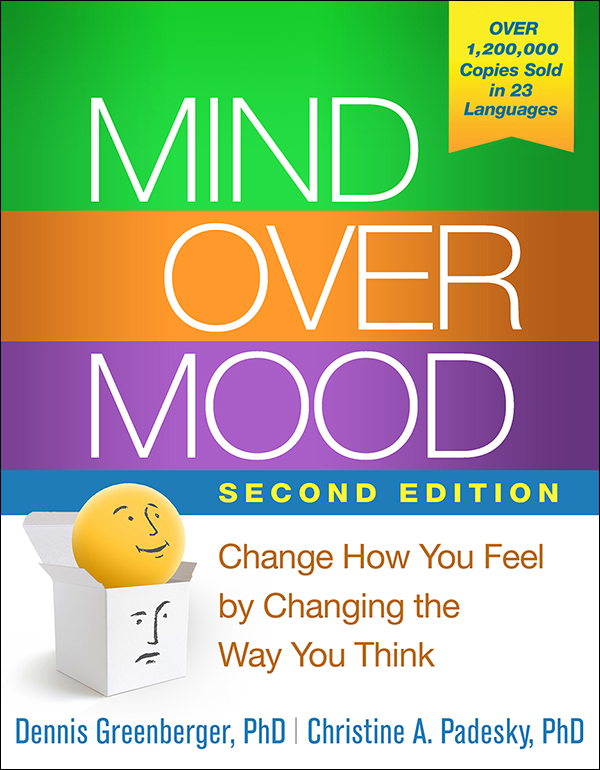 by Dennis Greenberger and Christine A. Padesky Foreword by Aaron T. Beck
by Dennis Greenberger and Christine A. Padesky Foreword by Aaron T. Beck
Discover simple yet powerful steps you can take to overcome emotional distress—and feel happier, calmer, and more confident.
Full Description:
<P>Discover simple yet powerful steps you can take to overcome emotional distress—and feel happier, calmer, and more confident. This life-changing book has already helped more than 1,100,000 readers use cognitive-behavioral therapy—one of today's most effective forms of psychotherapy—to conquer depression, anxiety, panic attacks, anger, guilt, shame, low self-esteem, eating disorders, substance abuse, and relationship problems. Revised and expanded to reflect significant scientific developments of the past 20 years, the second edition contains numerous new features: expanded content on anxiety; chapters on setting personal goals and maintaining progress; happiness rating scales; gratitude journals; innovative exercises focused on mindfulness, acceptance, and forgiveness; 25 new worksheets; and much more.
<P><I><B>
Mind Over Mood</I></B>will help you:
<LI>
Learn proven, powerful, practical strategies to transform your life.
<LI> Follow step-by-step plans to overcome depression, anxiety, anger, guilt, and shame.
<LI> Set doable personal goals and track your progress (you can photocopy the worksheets from the book or download and print additional copies).
<LI> Practice your new skills until they become second nature.
<P>
Cited as “The Most Influential Cognitive-Behavioral Therapy Publication” by the British Association for Behavioural and Cognitive Psychotherapies and included in the UK National Health Service Bibliotherapy Program.
<P>
Winner (Second Place)—American Journal of Nursing Book of the Year Award, Consumer Health Category
Foreword, Aaron T. Beck
1. How Mind Over Mood Can Help You sample
2. Understanding Your Problems
3. It's the Thought That Counts
4. Identifying and Rating Moods
5. Setting Personal Goals and Noticing Improvement
6. Situations, Moods, and Thoughts
7. Automatic Thoughts
8. Where's the Evidence?
9. Alternative or Balanced Thinking
10. New Thoughts, Action Plans, and Acceptance
11. Underlying Assumptions and Behavioral Experiments
12. New Core Beliefs, Gratitude, and Acts of Kindness
13. Understanding Your Depression
14. Understanding Your Anxiety
15. Understanding Your Anger, Guilt, and Shame
16. Maintaining Your Gains and Experiencing More Happiness
Epilogue
Appendix. Duplicate Copies of Selected Worksheets
|